As winter transitions into spring, the mighty hunter is gradually slipping into evening twilight as new constellations rise in the east.
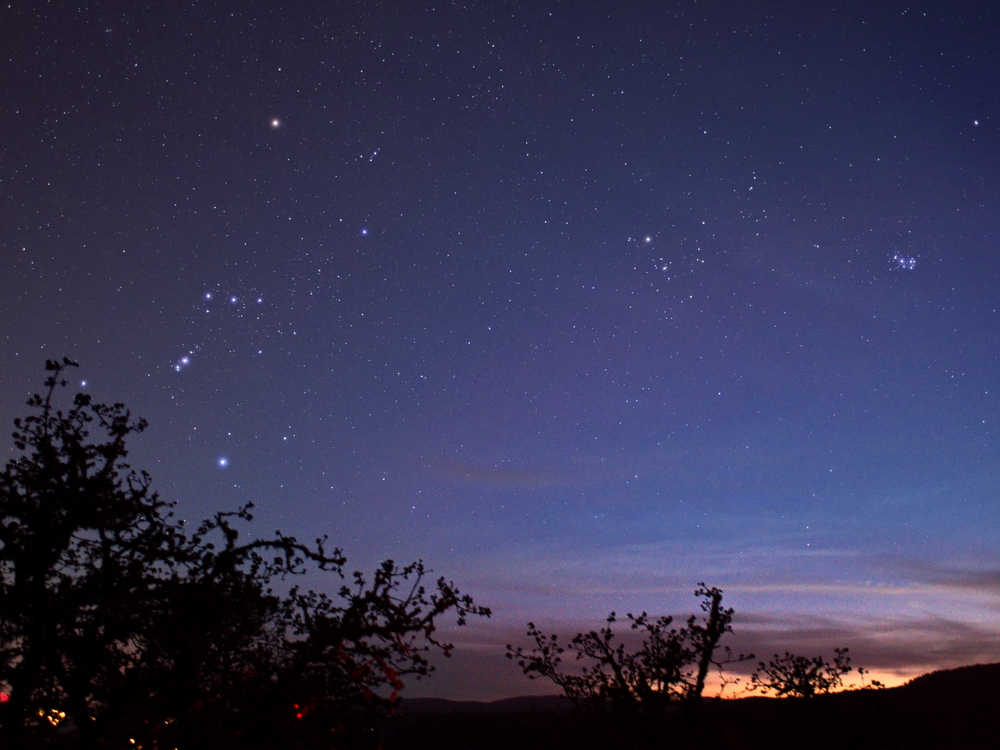
Photo by Gary Seronik
This week, take a moment to say goodbye to Orion, the winter sky’s most iconic constellation. In a month’s time, when the Moon is absent from the evening sky once again, the mighty Hunter will be overcome by twilight. And when he goes, he takes with him a fabulous collection of deep-sky treasures we’ve been enjoying with our telescopes. Goodbye magnificent M42. So long Horsehead Nebula. See you later M78.
Baffling Betelgeuse
As wonderful as those sights are, Orion’s most recent visit to the evening sky will be best remembered for the surprising and fascinating behavior of Alpha Orionis, a.k.a., Betelgeuse. It was only this past December that the astronomy world was wondering what was going on with the red giant star. The more excitable even pondered the possibility that Betelgeuse was on the brink of going supernova!
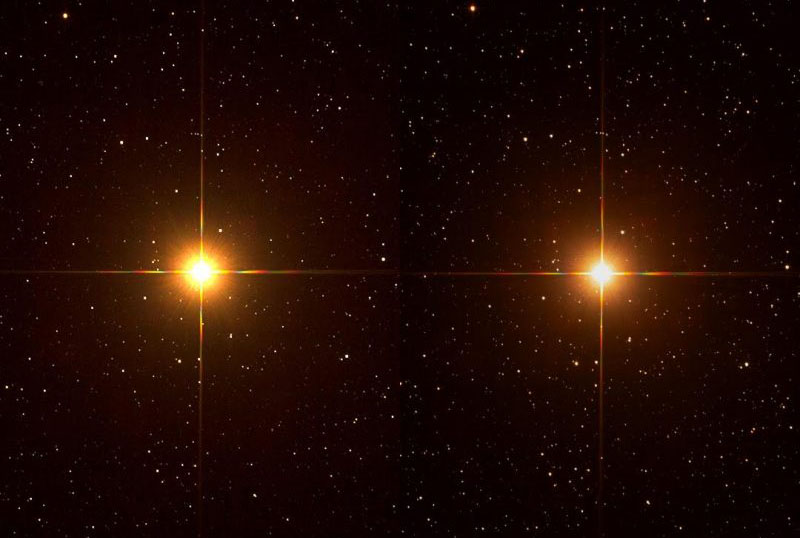
Courtesy of Brian Ottum and EarthSky
The star faded, and faded, and faded, until it bottomed out in early February at magnitude 1.6 – a far cry from its usual magnitude 0.5 luster. Now, as Orion prepares to exit the celestial stage, Betelgeuse has largely bounced back and shines at magnitude 0.7. It hasn’t been this bright in four months! Welcome back Betelgeuse – and goodbye for now.
Slip Sliding Away
For Northern Hemisphere skywatchers, Orion is caught between two forces working together to hasten the Hunter’s departure. First, there is the inexorable nightly westward drift of the constellations that allows us to see different areas of the sky at different times of year. This is a product of our planet’s year-long trip around the Sun.
A second factor is the rapidly lengthening days and shrinking nights that occur in spring. Sunsets happen later and later, and twilight lingers longer and longer until the June solstice. In autumn, the trend reverses. That’s why some constellations (like Orion) seem to come and go in a flash, while others (such as Cygnus) linger for months and months. The 23½° tilt in Earth’s axis — the same factor that gives us the change of seasons — is responsible for this effect.
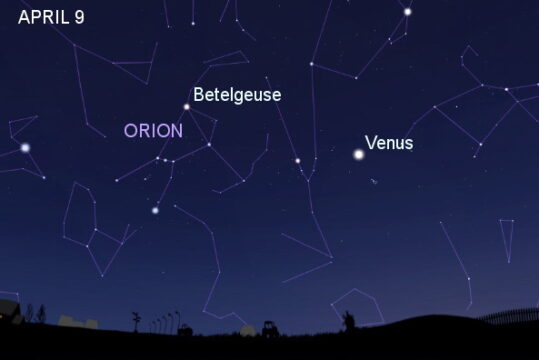
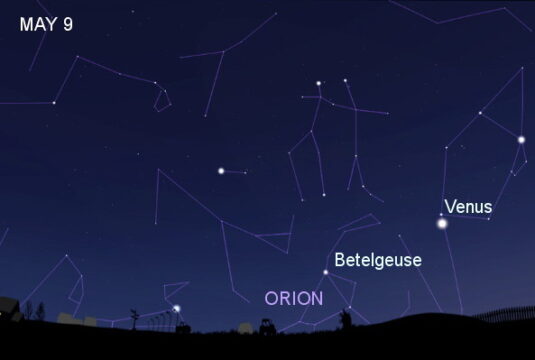
Stellarium with additions by S&T
Seasons in the Sky
As Orion slips away this month along with the lingering chill of wintery nights, brilliant Arcturus climbs out of the east, heralding the arrival of spring flowers and milder evenings. In the middle of the night, the trio of luminaries of the Summer Triangle — Vega, Deneb, and Altair — make their appearance, foreshadowing the short nights and long, hot days of the coming summer. And around it all goes, season after season, year after year.
Although we live in uncertain times, we can take comfort in knowing that Orion will return, emerging from dawn twilight in the first week of August. He’ll grace the evening sky once again towards the end of October, as he does every year. The comings and goings of the constellations help mark the passage of time and the repeating cycle of the seasons throughout our lives. You can depend upon it!
 3
3






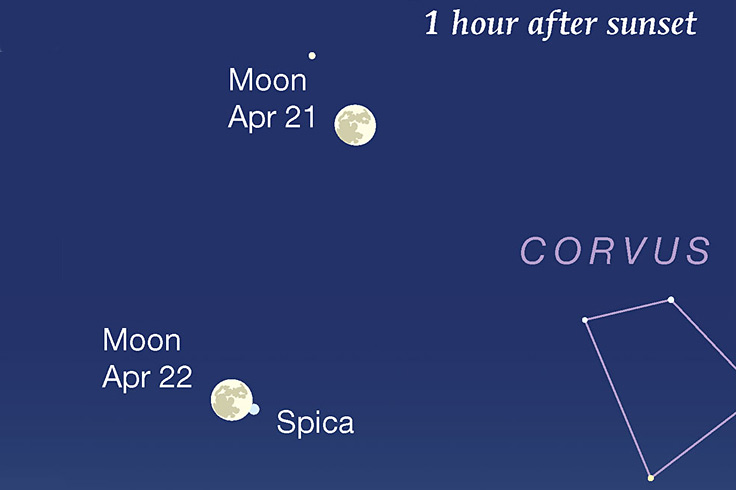


Comments
Pencil BFB
April 9, 2020 at 10:48 pm
That is unless you are in the South Pole, where you'll still see Rigel (and the Belt very low on the horizon) even at June, but not Betelgeuse.
You must be logged in to post a comment.
Pencil BFB
April 9, 2020 at 10:51 pm
That also means: Goodbye Orion, hello Scorpius!
You must be logged in to post a comment.
Tom-Johnson
April 19, 2020 at 9:10 am
It's good to see Betelgeuse sparkling again in the west. Thanks for a good essay!
You must be logged in to post a comment.
You must be logged in to post a comment.